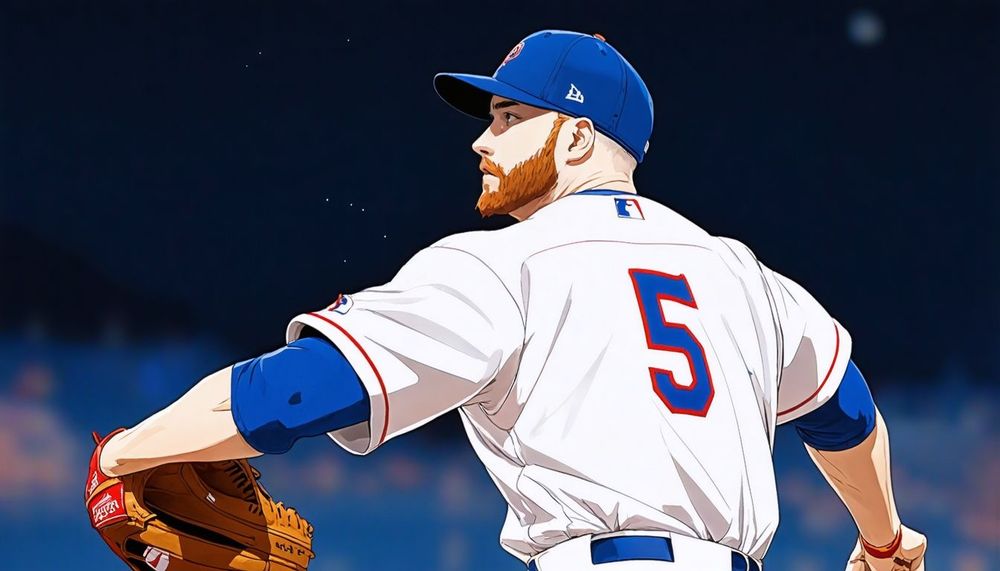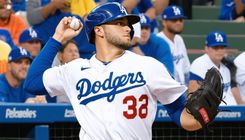MLB Power Rankings: Trade Deadline Impact Reflected

As the dust settles on one of the busiest trade deadline days in recent memory, the MLB landscape is being reassessed for the final two months of the season. This week's power rankings reflect the ramifications of the trade deadline, where the distinctions between buyers and sellers became crystal clear. Teams like the Los Angeles Dodgers and New York Mets are rich in talent and possess substantial payrolls but have yet to identify themselves as the unequivocal top team in baseball, as evidenced by an unprecedented 10 different teams holding the No. 1 spot in the rankings thus far this season.
The ranked teams are evaluated not only based on recent performance but also on their activity during the trade deadline. Consequently, a team may drop in the rankings despite a good week on the field or climb despite losing a series or two. Out of the 30 teams, 19 were identified either as buyers or holders at the deadline, while only 12 will secure a spot in the postseason. Thus, substantial sorting remains ahead to shape the playoff picture in the coming weeks.
The Colorado Rockies ranked last with a record of 30-81 after a 1-2 series against Cleveland and a 2-1 series win against Pittsburgh. Traditionally inactive during the trade deadline, the Rockies took a step forward this season by embracing the role of seller, offloading contracts such as Ryan McMahon's and trading relievers Jake Bird and Tyler Kinley for prospects. Although this does not signify a full rebuild, it indicates a shift away from merely maintaining the status quo. The Washington Nationals, sitting at 44-67, followed closely behind after trading a number of players including Michael Soroka and Kyle Finnegan, yet managed to keep key assets like ace MacKenzie Gore intact. With several games against the Phillies and Mets remaining, the opportunity to play spoiler in the NL East race is evident.
The Minnesota Twins (52-59) experienced a significant roster overhaul, trading 10 players from their 26-man roster. The recommendations of players such as Austin Martin and Edouard Julien may now come into play for future seasons. This notable shakeup suggests a deeper commitment to rebuild rather than a mere reset. Meanwhile, the Atlanta Braves (47-63) made no moves to trade upcoming free agents Marcell Ozuna and Raisel Iglesias, with GM Alex Anthopoulos emphasizing the importance of not giving away talent at the deadline. Sitting fourth in the NL East standings, the team's opportunity for improvement through the trade market slipped away.
The Chicago White Sox (42-70) managed a successful deadline, acquiring significant assets without trading fan-favorite Luis Robert Jr. Their trade of Adrian Houser for Curtis Mead highlights their ability to recognize the value in their transactions. In the same vein, the Pittsburgh Pirates (48-64) made the puzzling decision to retain significant free agents while trading others, further complicating their rebuilding efforts. The Oakland Athletics (49-65) emerged from the deadline with coveted prospects including Leo De Vries and Braden Nett, suggesting a promising future despite their present challenges.
The Arizona Diamondbacks (53-59) traded their major assets but decided to hold on to young star Zac Gallen. They welcome hopes for contention in the 2026 season, contingent on rebuilding their pitching staff. The Baltimore Orioles (51-61) sold off key pieces, such as Ryan O'Hearn and Gregory Soto, while retaining their young core, indicating a strategy for future success. Similarly, the Los Angeles Angels (54-58) made inconspicuous moves, acquiring rental players rather than focusing on a definitive direction. The St. Louis Cardinals (56-57) cleared their bullpen of notable contributors, securing prospects in return and igniting discussions about their organizational direction moving forward.
In a tight race for the postseason, the upcoming games will be vital for teams such as the San Francisco Giants (56-56), who seek to bounce back from a poor July record. The Kansas City Royals (56-56) shifted to a buying strategy, securing outfielders and pitching prospects as they chase postseason aspirations. Meanwhile, the Cleveland Guardians (56-55) limited their deadline deals, retaining their key players amid injury setbacks but bolstering their pitching staff for the future. The Miami Marlins (55-55) experienced a solid stretch in June and July, but their deadline moves will determine their capacity to compete in a crowded field.
Other teams, including the Texas Rangers (58-55) and New York Yankees (60-52), made strategic additions to strengthen their postseason bids. Evaluating the balance of trades and performance in the context of a changing landscape will be crucial as the season unfolds. With less than a month remaining in the regular season, these trades and the ongoing performances will be instrumental in shaping the playoff narrative as teams jockey for position in the final standings.









